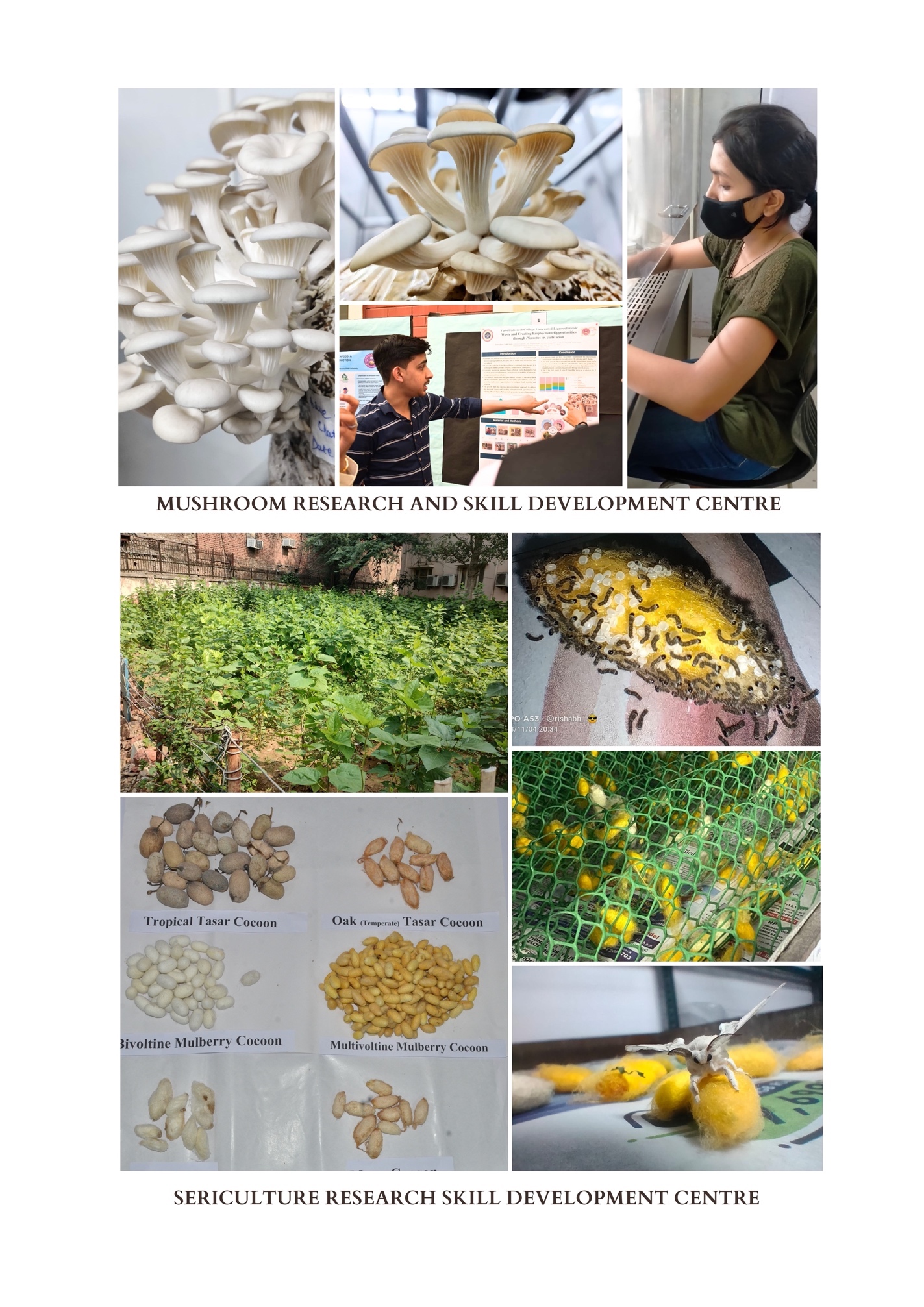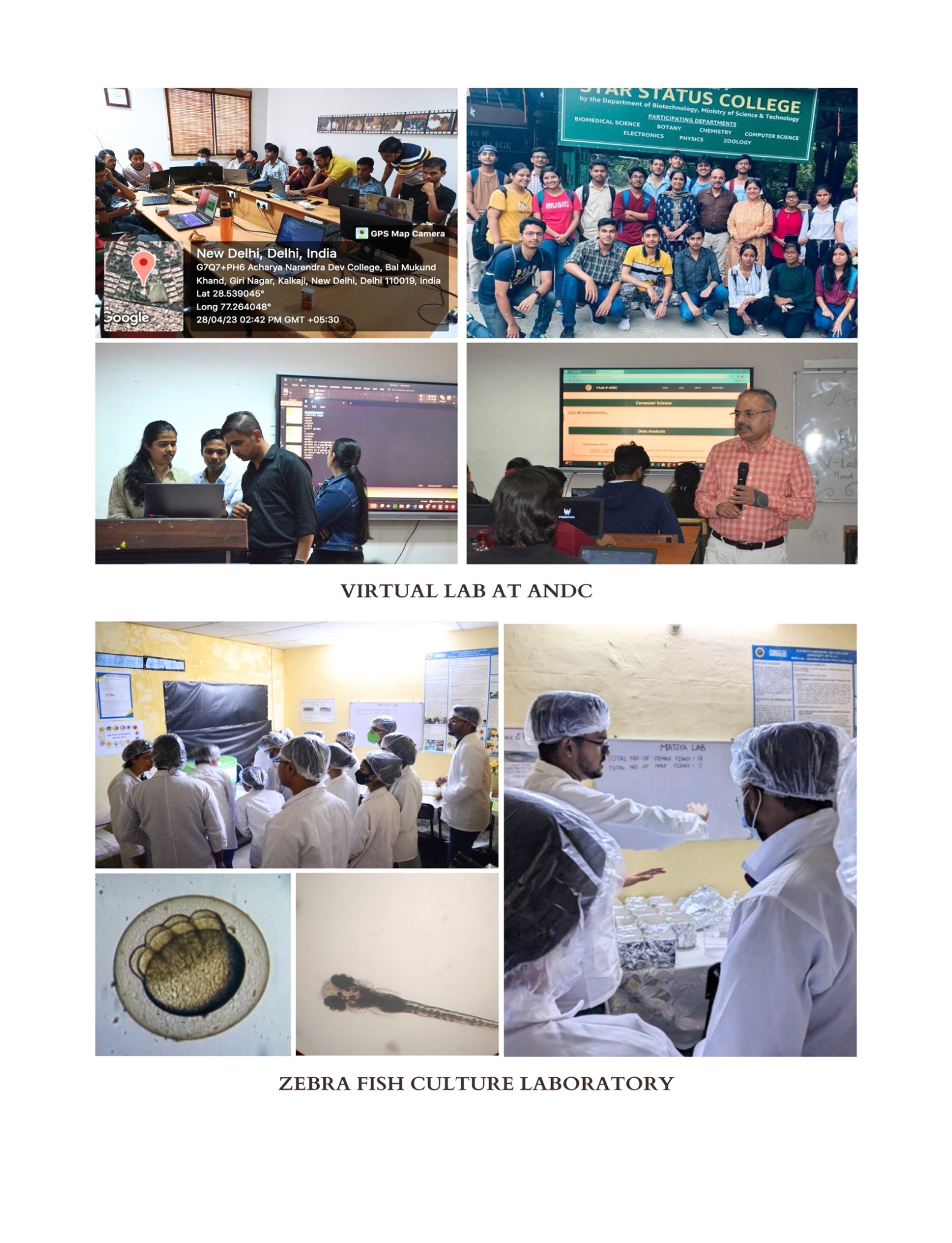Acharya Narendra Dev College's emphasis on the establishment of skill center programs signifies a proactive approach in imparting students with hands-on and relevant expertise. These centers have the potential to significantly enhance students' capabilities, preparing them for success in their selected domains and the professional realm. Moving forward, these skill centers will open avenues for students to engage in internships, cooperative programs, and industry projects, enabling them to acquire practical experience.
Co-ordinators: Prof. Seema Makhija, Mr Sanjay Vohra
Given the promising employment and entrepreneurship opportunities in the sericulture industry, Acharya Narendra Dev College has established a Sericulture Skill Development Centre in Sericulture. The primary goal is to provide students with comprehensive skills and knowledge in sericulture techniques. The center aims to offer extensive expertise in sericulture skills and methodologies, coupled with hands-on experience in breeding, rearing, harvesting cocoons, and post-cocoon processing. This year College organized a 7 Day Faculty Development Program on Sericulture: Rearing and its Applications for the faculty of University of Delhi in which hands on experience was given on rearing methods for mulberry silkworm.
Coordinators:Dr Anupama Shukla, Dr Anita Narang and Dr Vineet Kumar Singh
The Mushroom Research and Skill Development Center (MRSDC) at Acharya Narendra Dev College operating under the DBT-STAR status scheme. Its primary objective is to offer a mushroom culture facility to students enrolled in the SEC course focused on Mushroom Cultivation Technologies. Apart from imparting skills related to cultivating diverse mushroom varieties, MRSDC has expanded its role to encompass a wide array of activities. These include engaging in research, ensuring high-quality spawn production, conducting outreach programs, delivering training sessions, and extending its services to dispel prevalent myths surrounding mushroom cultivation and consumption. Mushroom technology is hailed as an environmentally friendly approach with the potential to address various societal and environmental challenges, such as air pollution, malnutrition, unemployment, and promoting women empowerment.
Convenor: Dr. Monica Misra; Co-Convener: Ms. Bhumika Chauhan
मत्स्य Lab -Zebrafish Culture facility, established at Acharya Narendra Dev College through the support of the DBT Star Scheme, aims to inspire and engage budding scientists in research pursuits.. It provides a hands-on experience in laboratory practices, delving into the captivating realm of live animal research and nurturing a more empathetic approach towards our environment and its creatures. Notably, we stand as the second college within the University of Delhi to initiate the development of a Zebrafish lab. The College is in the process of Registration of Internal Animal Ethical Committee (IAEC). Once approved by the Committee for the Purpose of Control and Supervision of Experiments on Animals (CPCSEA), Govt. of India, the breeding of fishes and study of various life stages and behavioural patterns will be done to establish patterns in the fish and its resemblance to humans.
Coordinator: Prof. Seema Makhija (Zoology) and Dr Vineet Singh (Botany)
Conveners: Dr Sanjeeta Rani (Physics), Prof. Sharanjit Kaur (Computer Science), Dr Anita Narang (Botany), Dr Neeti Mishra (Chemistry)
Acharya Narendra Dev College pioneered the concept of a Virtual Lab (V-Lab), aiming to grant undergraduate science students remote access to various labs via the internet. This initiative marked the college as the trailblazer in implementing V-Lab within the University of Delhi. The course design for various labs and experiments available on V-Lab@ANDC is forward-thinking, adopting a four-quadrant model for e-content, aligned with the principles of the National Education Policy (NEP)-2020. The V-Lab@ANDC website is curated and managed by students themselves, covering four domains: Biological Science, Chemical Science, Electronics, and Physical Science, encompassing seven departments: Biomedical Science, Botany, Chemistry, Computer Science, Electronics, Physics, and Zoology.
Link to: https://www.vlab.andcollege.du.ac.in/

